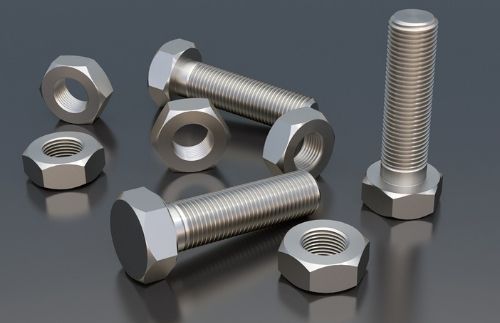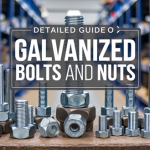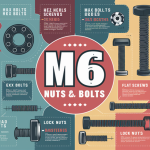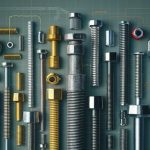Introduction to Stainless Steel Bolts Nuts

In the all-lasting area of contemporary manufacturing, the selection of materials can meaningfully impact the presentation, toughness, and dependability of products. Among such materials, stainless steel has arisen as a formidable contender, particularly when it comes to fasteners. Stainless steel bolts and nuts are types of machinery and are critical elements that increase the strength and workings of applications in numerous industries.
Features of Stainless Steel Bolts and Nuts
These bolts and nuts have received a reputation for being long-lasting and having excellent resilience to bad conditions for example high temperatures, pressure, and erosion. Numerous manufacturers mix metals like iron, chromium, and nickel to surge the nuts’ power and resistant to wear and strain. These nuts are also impervious to acids and chemicals, which makes them suited for use in conditions that are quite severe.
Types of Stainless Steel Nuts
- Hex Nuts: Six-sided nuts with a flat top and bottom, used for general applications.
- Nylock Nuts: Nuts with a nylon pull-out, giving a locking feature to stop loosening.
- Wing Nuts: Nuts with two wings or projections, used for easy tightening and loosening by hand.
- Flange Nuts: Nuts with a flanged base, provide a flat surface for mounting and added security.
- Coupling Nuts: Long nuts used for joining two rods or studs together.
- Cap Nuts: Nuts with a domed top, are used to cover and protect the end of a stud or rod.
- Lock Nuts: Nuts designed to stop loosening, repeatedly used in high-vibration apps.
Read Also: Why Stainless Steel Bolts and Nuts Are Ideal for Outdoor Applications
Applications of Stainless Steel Nuts
The Nuts have been using for many old and new sectors, such as the aerospace industry, construction manufacturing, the maritime business, and the automobile trade. It is common practice to use them in circumstances of strong temperatures or harsh surroundings, like oiled equipment, chemical doling out, offshore drilling, and similar situations. In addition, due to the truth that they are non-reactive and non-toxic. These nuts are frequently used in the production of medical equipment, laboratory equipment, and food processing apparatus.
Choosing Size and Thread Type
1. Your project’s integrity and lifespan depend on choosing the proper stainless steel bolts and nuts size and thread type. Bolt and nut sizes are determined by their diameter and length, which must be assessed depending on the application. Too short a bolt may not give adequate traction, while too long might impair stability and cause mechanical failure.
2. Measure the thickness of the materials you’re joining. The bolt should poke through the materials one full thread beyond the previous nut. This improves grip and facilitates installation modifications. Make sure to account for washers in your assembly, since they might affect length.
3. Both coarse and fine threads are significant. For softer fabrics, coarse threads are stronger and less likely to strip. Fewer twists to engage make them faster to install. However, tiny threads are ideal for precise applications since they manage tension and don’t loosen with vibration.
4. Sizing tables and thread compatibility should be used while choosing bolts and nuts. Attention to detail improves assembly performance and prevents expensive breakdowns. Choosing the correct size and thread type is about project safety and durability, not simply getting the job done.
Bottom Line
These nuts are a significant component of the manufacturing industry, it gives strength, roughness, and resistance to harsh situations. Understanding the features, kinds and applications of stainless steel bolts and nuts can help you select the right nut, ensuring longevity and safety. Working with consistent bolt suppliers India can also help guarantee that you get the correct quality of materials.
Read Also:







